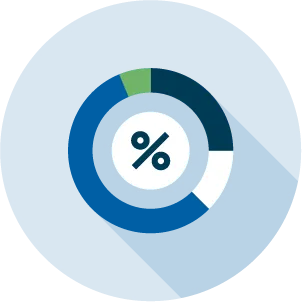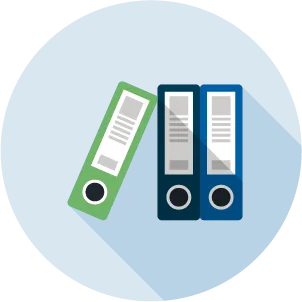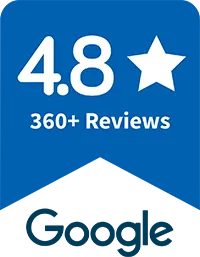

Grand Island, NE Mortgage Rates today
Nebraska's blend of affordable living, friendly communities, and a low cost of living make it an attractive destination for homebuyers. Its strong job market and excellent schools add to the appeal. When considering a home in Nebraska, remember to compare our current rates to secure an affordable mortgage that fits your lifestyle.
If you have any questions about securing the best mortgage rates in Nebraska, please contact us today. We are here to assist you in finding the mortgage rates that best suit your needs.
Compare today's mortgage rates for Grand Island, NE
Prequalify chevron_right
6.000%
6.734% APR
$3,038/mo
infoPrequalify chevron_right
6.875%
7.322% APR
$2,365/mo
infoPrequalify chevron_right
6.125%
7.154% APR
$2,375/mo
infoPrequalify chevron_right
6.125%
7.073% APR
$2,187/mo
infoPrequalify chevron_right
6.000%
6.646% APR
$2,185/mo
infoLatest revision - January 21 2025 12:30pm EST.We update the table twice every day with the current mortgage rates.
View Refinance Rateswe’re right around the corner
We have branches across the country. Check to see if we’re in your neighborhood.
Frequently Asked Questions
What are the current mortgage rates in Nebraska?
View our constantly updating rates page for the current mortgage rates in Nebraska. We refresh numbers twice daily to capture today's climate accurately.
How do Nebraska interest rates affect mortgages in the state?
The rise and fall of rates in Nebraska greatly influence affordability. When rates are high, monthly obligations and total outlay swell, pricing some out of the market. However, downticks make ownership more accessible and economical for those living within the state's borders.
Where can Nebraska residents find the best mortgage rates?
Through the home loan calculator Nebraska, residents can compare rates, annual percentage rates, and installment amounts among our listings to identify the most suitable choice. It is also prudent to consider eligibility and charges tied to each to make a decision with open eyes.
Should I lock my mortgage rate?
Mortgage rates are mercurial, shifting unpredictably through periods of fluctuation. Locking your rate may prove prudent under select situations: Rising trends endure, and mortgage rates slowly ascend throughout weeks and months; thus, securing your rate reassures you that it fails to surmount the initially certified charge. A Fed convenes, anticipating potential inflation during the assembly of central bankers, considers locking your rate ahead of the meeting for fiscal certainty. The longing for financial stability, locking your rate warrants a steady monthly payment persists, shielding from unforeseen alterations. A closing date is settled without extensions foreseeable; safeguarding your rate emerges as a strategic move.
How long does a mortgage rate lock last?
While mortgage lenders often promise a set interest rate for home purchases, several caveats could upend household budgets. Specific lock-in periods fluctuate, averaging thirty to sixty days to cement financing terms. Once this timeframe elapses, the bank can modify rates without consent. Similarly, shifts in credit score, loan tallies, debt obligations relative to income, or property appraisals during the locking phase risk nullifying initial quotes.
Nebraska first-time homebuyer loan programs
NIFA Homebuyer Assistance Program (HBA) Welcome Home
The Nebraska Investment Finance Authority's Homebuyer Assistance Program provides low-rate home loans and down payment help. Through this program, first-time buyers, veterans, and those purchasing in designated areas can access 30-year fixed, FHA, VA, or USDA mortgages. Participating homebuyers need only contribute $1,000 or more to the purchase price, though other factors like loan type and closing costs may influence funding eligibility elsewhere.
To qualify for the Nebraska first-time home buyer grants, applicants must meet standards including:
- Attain a minimum credit score of 640 if debt comprises 45% of income or a 660 score if debts comprise 50% of earnings.
- Completing an approved homeownership education course as well.
- Individual earnings cannot surpass $160,000 annually, while the house value must remain under $470,000 for single-unit properties.
- Additionally, the residence must serve as the primary domicile within 60 days of closing.
NIFA First Home Program
First-time homebuyers who don't need down payment assistance could look into NIFA's affordable First Home Program. This conventional, FHA, or USDA loan offers lower rates than an HBA loan yet maintains the same eligibility.
Those who are not first-timers can also benefit from purchasing in target areas. The down payment assistance Nebraska initiative resembles its namesake but with flexible income and price limits.
NIFA Military Home Program
Both active-duty personnel and eligible veterans, whether first-time buyers or not, can access NIFA's low-rate Military Home Program, which requires little to no down payment. Chiefly for VA loans, this program also partners with FHA and USDA loans.
Nebraska down payment assistance
NIFA Homebuyer Assistance Program (HBA)
First-time home buyer grants Nebraska make owning a home more feasible for many. This second mortgage, taken simultaneously with the primary, equals 5% of the purchase price. For ten years, the shallow 1% interest makes repayments manageable.
NIFA First Home Grant Program
Additionally, the NIFA loan offers a First Home Grant to qualified applicants. A $5,000 grant will help with the down payment if approved for an HBA first mortgage. Unlike the loan, the grant requires no repayment and can offset initial expenses.
Other Nebraska homebuyer assistance programs
Northern Ponca Housing Authority
The Northern Ponca Housing Authority has ensured sustainable shelter, home possession, and local progress services to individuals of the Ponca Tribe of Nebraska and other qualified Indigenous Americans. Qualifying Indigenous Americans can request down payment assistance in Nebraska by directly contacting their workplace by telephone, in person, or by filling out an online form.
North East Housing Initiative (NEHI)
NEHI, a private nonprofit in six northeastern Nebraska counties, proposes a purchase/renovate/resell scheme. It permits eligible first-time homeowners to pinpoint a residence that satisfies exacting standards outlined by NEHI, whose personnel inspect the property. Provided the property and a renovation cost prediction are endorsed, first-time home buyer grants Nebraska will bear it - make the renovations, then sell it to the applicant for the original purchase price plus rehab costs. At closing, NEHI furnishes the buyer with a zero-interest, deferred loan for up to $20,000 in down payment assistance.
High Plains Community Development Corporation
This HUD-approved housing counseling center services northwest Nebraska. It can assist homeowners in determining whether they qualify for a closing costs assistance grant from the Nebraska Housing Developers. The program's $6,000 grant money is available for income-qualified individuals on a first-come, first-served basis for those living in Dallas, Box Butte, Sheridan, Sioux, or Morrill counties.
FHA Loans
Even with less-than-stellar credit, FHA loans can offer a path to homeownership with just 3.5% down. Applicants with scores as low as 580 can apply for this loan.
VA Loans
Heroes have homes thanks to VA loans. Service members, veterans, and spouses can buy a down payment without scratching together. Low minimum credit requirements and competitive rates mean shielding patriots from precarious penury.
USDA Loans
If you are interested in buying a home in approved rural areas in Nebraska, the best deal is to apply for USDA loans. Zero down payment is a big advantage, and a minimum 640 credit score is the basic requirement.
Inclusion of a program on this website does not constitute an endorsement by Total Mortgage and does not guarantee your eligibility or approval for the program.
*Terms and Conditions Apply. For complete details click here.
Check out our other locations
Alabama , Arizona , Arkansas , California , Colorado , Connecticut , Delaware , District of Columbia , Florida , Georgia , Illinois , Indiana , Iowa , Kansas , Kentucky , Louisiana , Maine , Montana , Nebraska , Nevada , New Hampshire , New Jersey , New Mexico , New York , North Carolina , North Dakota , Ohio , Oklahoma , Oregon , Maryland , Massachusetts , Michigan , Minnesota , Mississippi , Pennsylvania , Rhode Island , South Carolina , South Dakota , Tennessee , Texas , Vermont , Virginia , Washington , West Virginia , Wisconsin , Wyoming , GuamCurrent Mortgage Rates By City
Mortgage rates are volatile and subject to change without notice. All rates shown are for 30-day rate locks with two and a half points for a single family owner-occupied primary residence with 750 or higher FICO and 80 LTV over a 30-year loan term except where otherwise noted and are subject to mortgage approval with full documentation of income. The APR for a 30-year and 15-year conventional fixed-rate mortgage loans are calculated using a loan amount of $360,000, two and a half points, a $495 application fee, $450 appraisal fee, $1,195 underwriting fee, a $10 flood certification fee, and a $82 credit report fee.* 15-year conventional mortgage rates are calculated with a 15-year loan term.* The APR for jumbo mortgage rates is calculated using a loan amount of $500,000, two and a half points, a $495 application fee, $450 appraisal fee, $1,195 underwriting fee, $10 flood certification fee, and a $82 credit report fee.* The APR for FHA mortgage rates is calculated using a loan amount of $360,000, two and a half points, a $495 application fee, $450 appraisal fee, $1,195 underwriting fee, $10 flood certification fee, and a $82 credit report fee. Some rates and fees may vary by state.* The APR for adjustable rate mortgages (ARMs) is calculated using a loan amount of $360,000, two and a half points, a $495 application fee, $450 appraisal fee, $1,195 underwriting fee, $10 flood certification fee and a $82 credit report fee. Some rates and fees may vary by state. Products are subject to availability on a state-by-state basis. By refinancing your existing loan, your total finance charge may be higher over the life of the loan.















